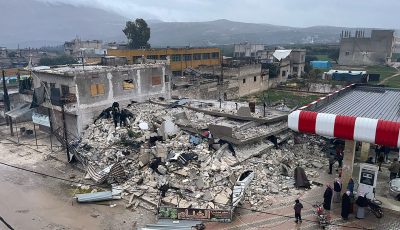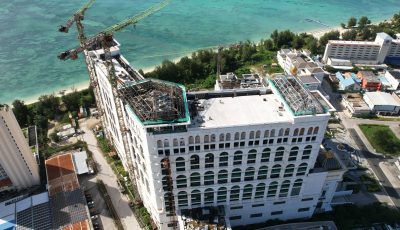TERRITORY AGREES WITH DOJ VIEW
A. Samoa: US Congress can deny citizenship to people born in territories
The American Samoan government and American Samoa’s non-voting Delegate to Congress Aumua Amata continue to argue in a new filing to the Supreme Court that people born in U.S. territories have no constitutional right to U.S. citizenship.
Instead, they agree with the U.S. Justice Department that Congress has the unilateral power to deny citizenship to people born in U.S. territories. In their view, American Samoa – which has been a U.S. territory since 1900 – is neither “in the United States” nor “subject to the jurisdiction thereof” for purposes of the Citizenship Clause of the Fourteenth Amendment.
“Our elected officials today continue to ignore that the traditional leaders who ceded sovereignty of our lands to the United States did so on the understanding that they would be recognized U.S. citizens as a result. In fact, after the federal government imposed the second-class status of non-citizen national in the 1920s, for decades our leaders fought for American Samoans to be recognized as full U.S. citizens,” said American Samoan Attorney Charles V. Ala’ilima, who serves as co-counsel for the Fitisemanu petitioners along with attorneys at Equally American and Gibson, Dunn, & Crutcher LLP.
“The idea that American Samoa is not ‘in the United States’ is baffling – not only is ‘American’ in the name itself, but American Samoans have the highest military enlistment and casualty rates of any U.S. jurisdiction,” Ala’ilima added. “To argue that American Samoa is not ‘subject to the jurisdiction’ of the United States even as our Constitutional Convention attempts to limit the unilateral authority of Congress and the Secretary of the Interior over our people is simply unbelievable.”
Ala’ilima concluded, “If our leaders today don’t want to be a part of the United States, or if they want a status similar to Micronesia, they should say so. But so long as the U.S. flag flies overhead our people have a constitutional right to be recognized as citizens that Congress has no power to deny.”
Current and former elected officials from Guam, the Northern Mariana Islands, Puerto Rico, and the U.S. Virgin Islands have filed briefs in support of recognizing a right to citizenship in U.S. territories, and calling on the Supreme Court to overrule the Insular Cases. Earlier this year, they argued to the Supreme Court that “all persons born in the United States, including the Territories of the United States, have equal entitlement to the Constitution’s promise of birthright citizenship.”
The American Samoan government’s brief argues that federal courts should not recognize a right to U.S. citizenship, believing that such a decision could threaten American Samoan self-determination or the Fa’a Samoa, the traditional Samoan way of life.
“The Fitisemanu plaintiffs agree with American Samoan officials on the importance of self-determination and cultural preservation, they just disagree that recognizing a right to citizenship would threaten those values,” Ala’ilima stated. “Once again, American Samoan officials fail to provide any legal basis for their concerns over citizenship.”
The view that recognition of a right to citizenship is compatible with protecting self-determination and cultural preservation is emphasized in the brief filed by elected officials from other territories who “demonstrate through their own experiences how U.S. citizenship is fully compatible with the Territories’ right to self-determination, their local legal traditions, and the preservation of their vibrant cultural heritage.”
Legal scholars who have considered the objections to recognition of citizenship raised by American Samoan officials have found them legally unfounded. As Professor Christina Ponsa Kraus writes in a recent article published in the Yale Law Review, “citizenship would not threaten any of the cultural practices at issue,” arguing further that “even without the Insular Cases, constitutional law contains sufficient flexibility to accommodate most, if not all, of the cultural practices.” Professors Cassandra Burke Robertson and Irina D Manta emphasize in a recent Texas Law Review article that “at this time there is no affirmative legal authority suggesting that citizenship would play any role in deciding the legality of these [cultural] practices.” Professors Guy C. Charlton and Tim Fadgen further explain in a recent article published in a UCLA journal that “using the Insular framework to argue that Sāmoan self-determination is enhanced inappropriately conceptualizes the notion of self-determination.”
While American Samoan elected officials have opposed recognition of a right to citizenship for those born in American Samoa, those views are not shared by all. Over the course of the Fitisemanu litigation, hundreds of American Samoans living throughout the United States have expressed strong dissatisfaction over being denied recognition as citizens, and also explained many ways in which being denied citizenship has impacted their lives.
Some American Samoan officials insist that the Fitisemanu plaintiffs and others who want to be recognized as citizens should just naturalize. But those living in American Samoa are not even legally able to naturalize. And those who have established the requisite residency in the states are required to go through the same naturalization process as an eligible foreign national – an expensive, stressful, and burdensome process that can take 1-2 years or more and has no guarantee of success.
“The discriminatory denial of citizenship to people born in American Samoa makes it harder for our community’s voice to be heard politically, and harder for our people to succeed economically,” said Michelle Mataese, President of the Los Angeles-based Samoan Federation of America, which filed a brief in support of the Fitisemanu petitioners outlining the historical support for citizenship in American Samoa and addressing how the denial of citizenship causes real harms without serving to advance American Samoa self-determination or cultural preservation. “Our traditional leaders who signed the Deeds of Cession were right – with the transfer of sovereignty over our lands to the United States, our people gained a right to be recognized as U.S. citizens, and citizenship presents no threat to our culture or self-determination.”
The Fitisemanu plaintiffs will be filing their reply to the United States and American Samoan government in the coming weeks. The Supreme Court will consider whether to take up the Fitisemanu appeal in October or November.
More information addressing concerns raised by American Samoans officials about Fitisemanu is included in this FAQ. And all the court filings in Fitisemanu, along with additional background materials, is provided here. A statement addressing the U.S. Justice Department’s response to the Fitisemanu petition is available here. (PR)



























